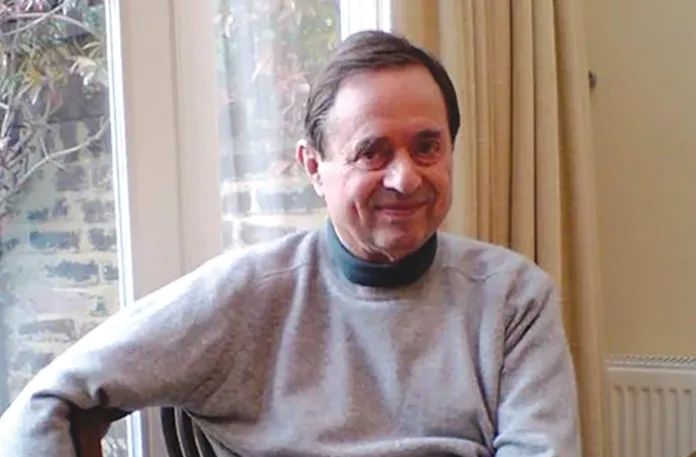David Pryce-Jones, the famed author, essayist, and man of letters, died at age 89. A popular writer, historian, and journalist, Pryce-Jones’s career spanned more than six decades. He was, in many respects, the last of his kind. His death marks the end of both an era and a certain kind of intellectual — one that we need now more than ever.
Born in 1936 in Vienna, Pryce-Jones’s upbringing was both unique and representative of a certain era and class. His father, Alan Payan Pryce-Jones, was a noted British book critic and editor. His mother, Therese “Poppy” Fould-Springer, was “half French and half Austrian but altogether Jewish,” he observed. His father’s family would say, “David: What a nice Welsh name,” while his mother’s would proudly exclaim, “David: What a nice Hebrew name.”
The identity of his family, Pryce-Jones said, was “uncertain.” They were both “fortunate” and “innocent.” He counted members of the famed Rothschild and Bonham Carter families as his cousins. In his book, Fault Lines, Pryce-Jones looks back with both wistfulness and bemusement at the chaotic life at the family chateau, Royaumont, described by his actress cousin Helena Bonham Carter as a “mad mixture of aunts, uncles, and cousins, all wrapped up in one house.” It was a rarefied world that tragically no longer exists.
His childhood was cosmopolitan, highly literary, and, as his memoirs note, eccentric. It was also irrevocably stamped by the horrors of war.

World War II and the Holocaust obliterated what was left of Old Europe after the last great war. Entire worlds were shattered and destroyed, and Pryce-Jones’s family was not immune. His childhood was, in some ways, a matter of staying one step ahead of the Nazis. In 1938, the family fled to France. In 1940, four-year-old David was stranded with his nanny in Normandy during the Nazi invasion. Were it not for the intervention of his mother’s brother-in-law, the legendary Spanish diplomat Eduardo Propper de Callejón, Pryce-Jones likely would have died.
The young Pryce-Jones made his way from Spain to Morocco before winding up in England. Years later, Saul Bellow, the famed writer and a contemporary of sorts, remarked that this narrow escape was “the Jewish experience.” His parents’ house in London was burned during the Blitz. Both the war and the Holocaust, occurring as they did during his formative years, forever shaped his outlook on life.
Like his father, Pryce-Jones attended Eton and Oxford. After a stint in the British Army, he embarked on a career in journalism, with stints at the Financial Times and the Spectator. As a roving correspondent for the Daily Telegraph, he covered events in central and eastern Europe during the upheaval of the 1960s, along with the 1967 and 1973 wars in the Middle East. Later, he obtained long-held perches at the National Review and the New Criterion. His writing style was charming, lucid, and imaginative. And his choice of topics, including investigations into the collapse of the Soviet Union, French antisemitism, the Arab world and progress, were invariably controversial.
He was unafraid to stir up the hornet’s nest. In fact, he seemed to relish doing so. He was willing to ask deep, and often troubling, questions irrespective of where the answers might lead. Time and again, he chose courage over conformity.
On the face of it, much of Pyrce-Jones’s work focused on foreign affairs and history. But at a deeper level, his books were also about identity and culture. He appreciated, in a way that few modern writers do, that these subjects are intertwined.
THE MIDDLE EAST REMAINS KEY TO AMERICAN INTERESTS
He had a gift for seeing what others could not — or, more often, would not. This, perhaps more than any other trait, is what makes his works stand apart. He was prescient. For example, he wrote about rising antisemitism in Europe and its causes long before it was on anyone’s radar. His writings were inquests steeped in history.
Pryce-Jones was part of a class of writers and historians, including the late Paul Johnson and Martin Gilbert, who were distinguished for their fearlessness, erudition, and willingness to tackle big topics. Born and reared in the wake of WWII and the dawn of the Cold War, they did not suffer illusions or fools. They were capable of looking at contemporary events through a deep and learned lens. With the dawn of social media and what some have called the “post-literate age,” such intellectuals are increasingly rare. Too many are content with thinking small and being small. We are the worse for it.
Sean Durns is a Washington, D.C.,-based foreign affairs analyst.
